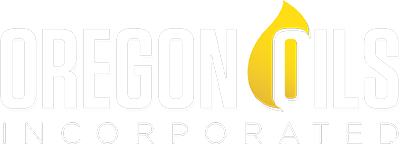FAQs
Oregon Oils, Inc
What is FOG?
FOG is an acronym for fats, oils, and grease. These substances, along with solid food particles, are collected by your grease trap to prevent contamination of city sewer lines. Regular grease trap cleaning services help ensure your establishment complies with local regulations and avoids potential plumbing issues.What kind of oil do you recycle?
Our company primarily recycles used cooking oil from fryers. We also accept various types of FOG, including bacon grease, beef tallow, peanut oil, sunflower seed oil, and vegetable oil. It's important to note that we do not accept motor oil or appliance oil for recycling.How does your cooking oil recycling program work?
Our cooking oil recycling program is a free service. We provide a clean oil receptacle suitable for your waste oil production. You'll receive payment based on the amount of used cooking oil your establishment generates. Once the receptacle is full, we'll collect it and add your establishment to a collection route. The pickup frequency depends on your receptacle size. After collection, we process the oil at our facility. We also maintain the receptacles, replacing lids or containers as needed.What's the difference between a grease trap and an oil container?
Grease traps are plumbed-in devices located beneath sinks or outside in the ground. They collect FOG to prevent sewer line contamination. In contrast, our recycling program provides separate collection containers for FOG. You simply deposit your used cooking oil into these containers for our scheduled pickup.How do I change my grease trap frequency?
To adjust your grease trap cleaning frequency, please contact our office. We'll update our scheduling system accordingly. Our software tracks your grease trap frequency and ensures timely service. We also handle the submission of proper pump-out reports to city inspectors, helping your establishment maintain compliance with current regulations.Is Oregon Oils a member of the Preferred Pumper Program?
Yes, Oregon Oils is a registered member of the Preferred Pumper Program (PPP). As a PPP member, we adhere to strict pump-out criteria. Commercial FOG generators in the region are encouraged to use preferred pumpers like us. By choosing Oregon Oils, you can be assured that maintenance is performed correctly and to the highest industry standards. We also take responsibility for completing and submitting pump-out reports on your behalf.Do you offer regularly scheduled oil collection and grease trap cleaning
Indeed, we provide regularly scheduled cleaning services for both oil collection and grease trap maintenance. Service agreements are available to suit your specific needs and ensure consistent, timely service.My grease trap overflowed. What should I do?
In case of a grease trap overflow, please contact our office immediately. We'll dispatch a technician to assess the situation and perform a pump-out if necessary. Overflows are often caused by clogged pipes, and your pump-out frequency may need adjustment. To prevent future issues, we recommend setting up a regular cleaning schedule, avoiding sweeping food down drains, and keeping non-food materials out of your drainage system.How to reduce foul grease trap odors?
Grease traps naturally produce odors, which can emanate from the trap lid or sink drains. To address buildup and odors, consider installing a new gasket (we offer this service for a nominal fee), increasing the frequency of scheduled pick-ups, and avoiding disposal of milk products down your sink. These measures can help minimize unpleasant odors associated with grease traps.What kind of businesses do you offer oil collection and grease trap cleaning?
Our oil collection and grease trap cleaning services are available to a wide range of businesses with kitchen facilities. This includes restaurants, hotels, resorts, senior living communities, hospitals, and any other establishment that operates a commercial kitchen.
